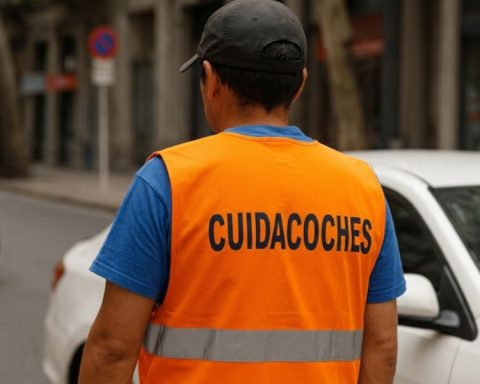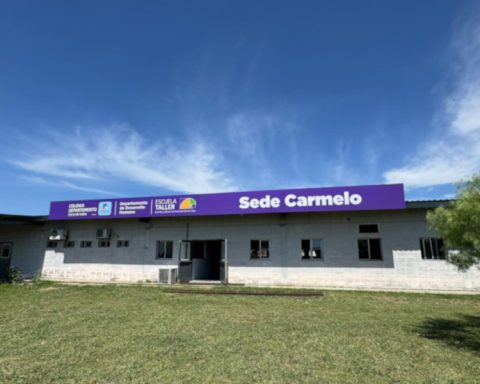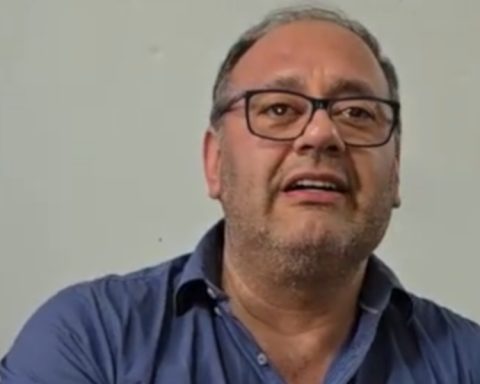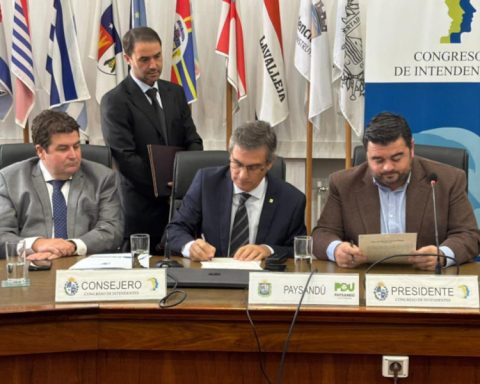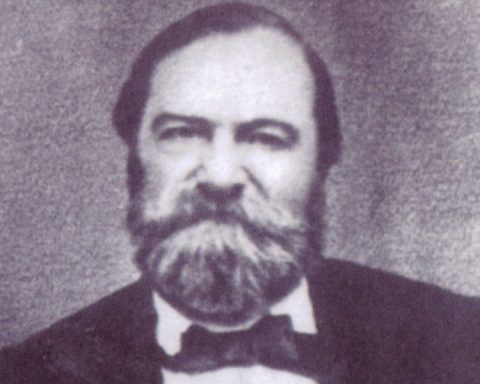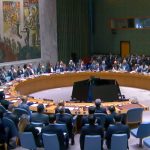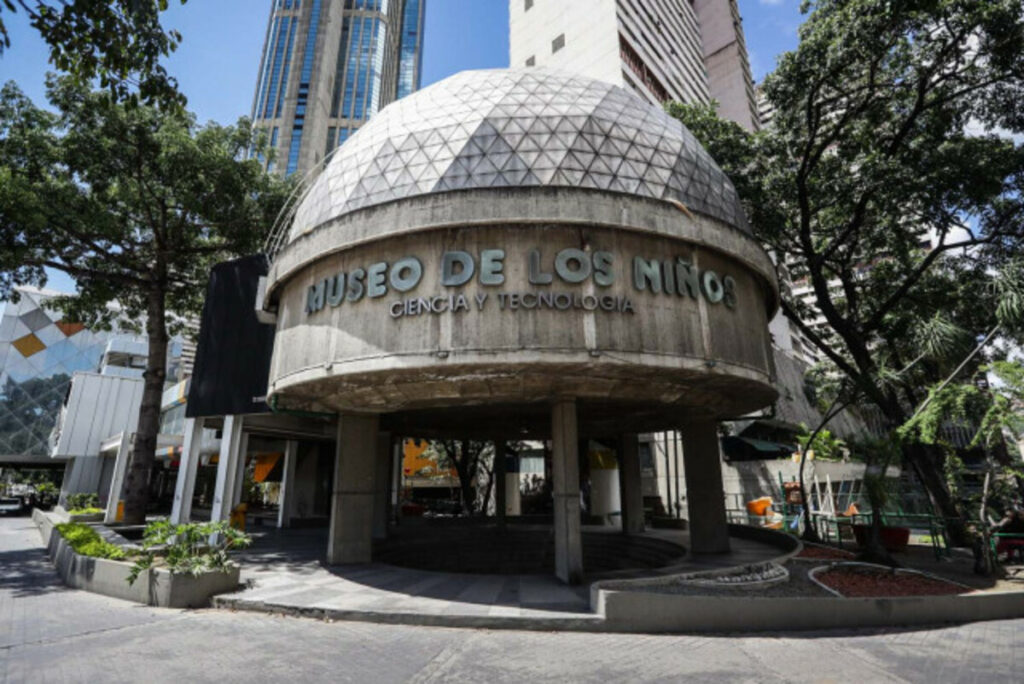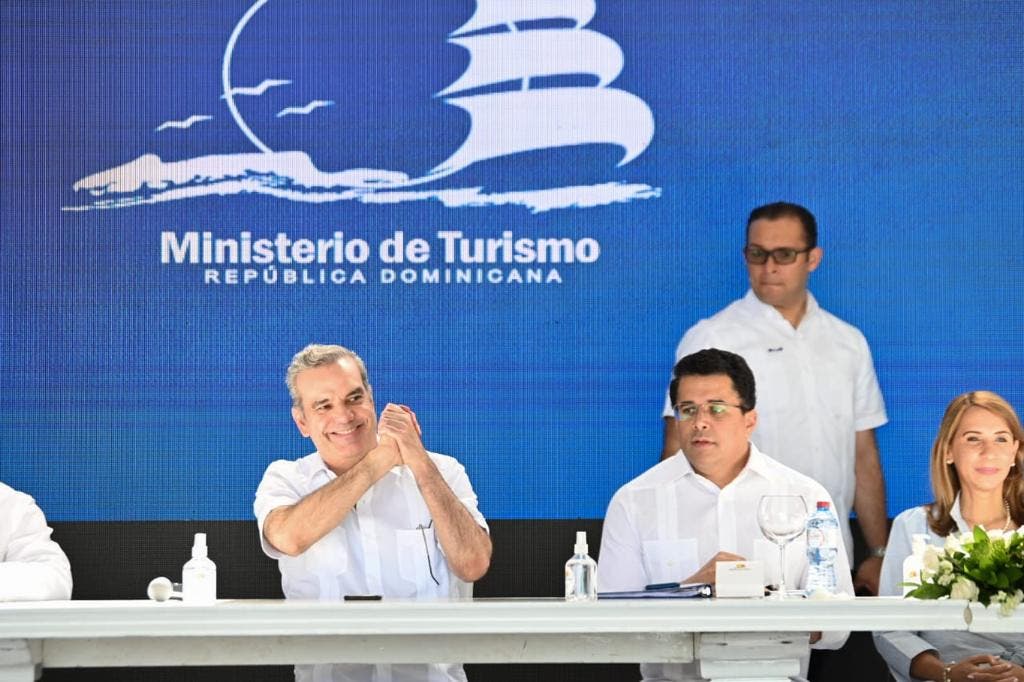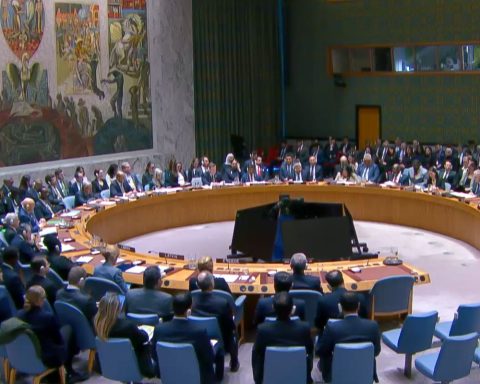Education authorities inaugurated, this Friday the 24th, infrastructure works in school No. 5, the high school and the Guichón Agrarian School, for an investment of 18 million pesos. During the tour, the head of the National Administration of Public Education (ANEP), Robert Silva, stated that it is a policy focused on the needs of the centers, optimization of resources and equitable distribution.
Also present were the general director of Secondary, Jenifer Cherro; the general director of Initial and Primary Education, Graciela Fabeyro; the general director of Professional Technical Education, Juan Pereyra; the advisor of ANEP Juan Gabito Zóboli; the mayor of Paysandú, Nicolás Olivera, and local authorities.
The first inauguration took place in the Guichón high school, where extensions and refurbishments were made, for an investment of 15 million pesos. The works included two new classrooms, a physics laboratory and a chemistry laboratory, new assignments and reforms in various sectors of the premises. 42 teachers work at the high school, there are 350 students, of whom 90 travel daily from various locations up to 60 kilometers away.
Second, they toured the facilities of the technical school, where a comprehensive reform will be carried out that will cost 51 million pesos, through an agreement with the National Development Corporation. The works, which will begin in September, include the construction and expansion of workshops, classrooms, laboratories and a multipurpose field.
In school No. 5, the authorities inaugurated a sports space built on a property adjacent to the premises, in agreement with the Ministry of Housing and Territorial Planning (MVOT). In the act, after oratory, there was a sports demonstration of handball, volleyball and basketball for schoolchildren.
The last inauguration was held at the Agrarian School, where remodeling works were carried out in the center’s dining room and kitchen, for an investment of more than 3 million pesos.
During the tour, Silva highlighted the work with the departmental commune and the ministry to carry out the works. In addition, he highlighted the commitment of the Guichón community with public education, and argued that families and centers must create a strategic alliance in favor of the formation of new generations.
“We have the challenge of working for a society that is increasingly fair, equitable and that gives opportunities,” he said, adding that we must prepare the new generations so that they “learn to learn, innovate and create”, all necessary and fundamental skills. in this society of constant change, he remarked.
He also explained that ANEP is working on educational transformation, which implies substantial changes in the curricula, the strengthening of the teaching career, the improvement in graduation and the decentralization of management. “Hopefully we are able to carry out this transformation with all the actors involved through a deep dialogue and being aware that the new realities need these changes,” he concluded.
For his part, Cherro maintained that the centers show the perseverance, sacrifice and commitment of the local communities and assured that the improvements in infrastructure have repercussions on the quality of the learning processes and on the teaching tasks, “in better possibilities and more opportunities for students and teachers.
Meanwhile, Fabeyro valued the participation and collaboration of the community with the local institutions and the intersectoral work to respond to the various demands.
After the inaugurations, the authorities held a meeting with the Decentralized Commissions of Paysandú, Salto and Artigas at the departmental Teacher Training Institute and ended the day with the meeting “Face to face with the community”, in the assembly hall of Casa of the Culture of the capital, in which the strategic axes of the educational transformation were presented.

